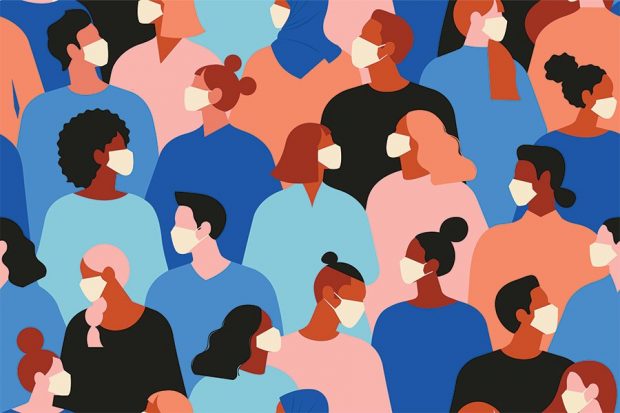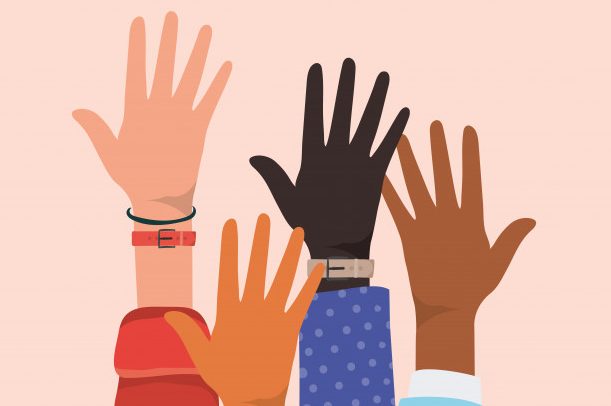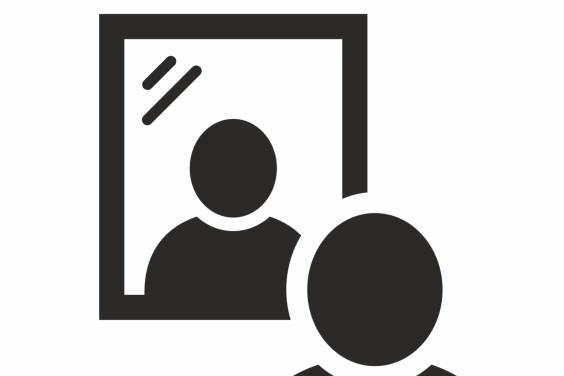Mark Harvey: Throughout this coronavirus pandemic, we have been reminded again of the devastating impact societal inequalities have had on the health and wellbeing of Black, Asian and ethnically diverse (BAME) citizens. The recent Public Health England report highlighted the need for us to finally act and consider the unacceptable impact such inequalities have always had on our communities. Furthermore, the recently published Covid-19 Winter Plan, informed by the excellent work of the Covid-19 Social Care Support Taskforce will, I hope, concentrate minds even further.
It is therefore important that any work we do in the Chief Social Workers’ office is not only cognisant of these facts, but also actively engages in the issues raised and delivers action. The same must also be said for all of us working in - or with - the wider social care sector. I have recently had the privilege of witnessing the fruits of this commitment, drive and determination to make a difference at close hand.
That's why I am so pleased to introduce this guest blog from Tricia Pereira and Cedi Frederick. Together, they set out their roles in a crucial endeavour to address BAME health inequalities, exposed as never before by this unwelcome and persistent pandemic.
 New connections, new endeavours
New connections, new endeavours
Until very recently, Cedi and I had never met! Then, out of the blue, we were contacted by Mark Harvey, Joint Chief Social Worker for Adults with Fran Leddra. He needed to develop a new policy group and thought we’d be ideal candidates to chair and lead it. When he explained the scope of the work, to be frank, we thought it sounded like an impossible task.
The ask was to set up, chair and lead a BAME subgroup as part of the Department of Health and Social Care Sector Covid-19 Support Taskforce, chaired by former ADASS President, David Pearson.
Over the last few months, the taskforce has overseen the implementation of the government’s social care action plan and care home support package. Its purpose is to make sure action is taken to reduce the risk of COVID-19 transmission in the care and support sector.
The taskforce is made up of representatives from Public Health England, Care Quality Commission, Care Provider Alliance, Local Government Association, ADASS, Healthwatch England, Ministry of Housing, Communities and Local Government, Cabinet Office and DHSC.
Meanwhile, eight sub advisory groups lead on a variety of critical areas, developing recommendations for the Taskforce to take forward. The BAME Communities Advisory Group is just one of them. Read more about all of them here.
 Scoping the challenge
Scoping the challenge
As should be widely known, people from BAME backgrounds, including those working on the frontline of heath and care, are particularly vulnerable to coronavirus, suffering higher death rates, compared to those of white British ethnicity.
From the outset, we knew there was a lot of useful information to review before we could begin proposing strategies and actions that would boost protection for people from ethnic groups. To make matters even more interesting; we had a delivery timeframe that was, shall we say, tight!
Luckily, our social work backgrounds meant we already knew all about building positive relationships quickly.
When leading or being part of a project team, fostering good relationships can be the difference between outstanding success and dismal failure. It’s all about developing mutual respect and trust so that teams can deliver at the right time, in the right way, with the least pain.
However, after our first Chairs discussion, Cedi and I immediately felt a kinship. We felt confident we could meet expectations and deliver the subgroup’s objectives.
Our first task was to create the BAME group itself. The great and the good of our care sector partners came together quickly including Coproduce Care, BASW, HC-One, National Care Association, ADASS and the Department of Health and Social Care. We were all set.
So, we had two weeks to deliver something that would make a real difference to and for ‘our people’. That’s how we saw it, from start to finish. We set the bar high.
 Reflecting reality
Reflecting reality
We wanted to hear from real people living through this pandemic. It was important they felt heard and that their views mattered. That’s why our amazing subgroup members organised not one, but two online Engagement Events in 72 hours. One engagement session was focused for people from BAME communities, BAME people who make use of social care services, there was good attendance from individuals, their family members and carers.
The second event was open to BAME people who work in the social care. Some people who attended this session also identified as carers and with having their own needs and therefore it is important to recognise in our report the intersectionality. The interconnected and overlapping nature of inequalities and discrimination.
Additionally, we met with and interviewed various community and faith group leaders including the Sikh Council UK, the Council of African and Afro-Caribbean Churches UK, the Muslim Council of Britain and the Board of Deputies of British Jews.
The findings from our engagement and research allowed us to polish a range of recommendations to Government seeking to reduce the disparities experienced by the BAME workforce and BAME communities in need of and making use of social care services.
Proposals for improved support
Our recommendations called for co-producing policy solutions alongside BAME communities; greater integration and sharing of good practice between health and social care systems, readily available PPE, and a commitment to improving culturally competent delivery of care and policy making. Crucially, we expressed the need to continue the work of the sub-group beyond the remit and timeframe set at this time to create lasting, long-term solutions.
As subgroup members, we didn’t always agree on approaches, but people who are passionate about something will find common ground.
We’re sure the other advisory groups worked with the same sense of purpose, but as people from BAME Communities have been so adversely affected, both Cedi and I appreciated just how important this work was as part of broader efforts to reverse these inequalities.
The opportunity to be part of this movement, to build on and reinforce recommendations, to shape actions to improve the lives and experiences of BAME communities, were all strong drivers for our group. We’re not sure our total, utter and absolute commitment could be matched!
Find out more
You can read the subgroup’s recommendations in the Social Care Sector Covid-19 Support Taskforce report.
Leave a comment